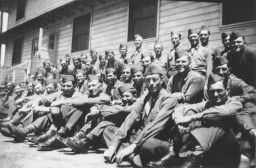You searched for: ab老虎机游戏【打开网址∶3399yule.com】ab网上博彩平台推荐,ab平台官网: 3399yule.com】ab电子老虎机游戏
<< Previous | Displaying results 11-15 of 15 for "ab老虎机游戏【打开网址∶3399yule.com】ab网上博彩平台推荐,ab平台官网: 3399yule.com】ab电子老虎机游戏" | Next >>
-
Mina Beker
ID CardMina, born Mina Friedman, was the youngest of four daughters born to a Jewish family in the Lithuanian town of Jonava. At the age of 18, Mina married Osser Beker, a lumber dealer. The couple settled in Jonava where Mina worked as a seamstress. The Bekers had two sons and two daughters, but their oldest son died in a childhood accident. 1933-39: Mina's son Abe attended a Jewish religious school in Jonava. But since Mina had received an extensive Jewish education, she decided to teach her daughters at home.…
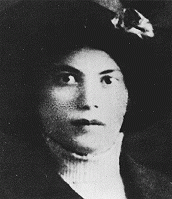
-
Judith Beker
ID CardJudith was one of three children born to a Yiddish-speaking Jewish family living on a farm near the Lithuanian town of Jonava. Judith's mother had an extensive Jewish education and taught her daughters at home. Her son, Abe, attended a Jewish religious school in Jonava. Judith's father worked in the logging industry. 1933-39: In the fall of 1938, six months after her father died, Judith and her mother moved to Kovno, the capital of Lithuania. She was 9 years old. Kovno at that time had a large Jewish…
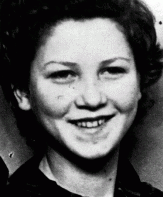
-
Abraham Malnik describes massacre in Kovno's Ninth Fort, near the Kovno ghetto
Oral HistoryAbraham came from a wealthy family that was ordered into the Kovno ghetto after the Germans occupied Lithuania in 1941. Abraham's mother urged his father to flee, but he returned for them. Begging for mercy, he was able to save them from a massacre in the Ninth Fort, one of several forts around Kovno. Abraham and his father survived internment in five camps before they were finally liberated in the Theresienstadt ghetto. Abe's mother perished at the Stutthof camp.
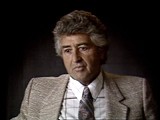
-
Robert Wagemann describes fleeing from a clinic where, his mother feared, he was to be put to death by euthanasia
Oral HistoryRobert and his family were Jehovah's Witnesses. The Nazis regarded Jehovah's Witnesses as enemies of the state for their refusal to take an oath of loyalty to Adolf Hitler, or to serve in the German army. Robert's family continued its religious activities despite Nazi persecution. Shortly before Robert's birth, his mother was imprisoned briefly for distributing religious materials. Robert's hip was injured during delivery, leaving him with a disability. When Robert was five years, he was ordered to report…
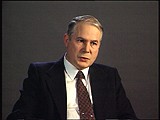
-
Ritchie Boys
Article“Ritchie Boys” is a term used for American soldiers who trained at Camp Ritchie during World War II. Several thousand were Jewish refugees from Europe. Learn more.
